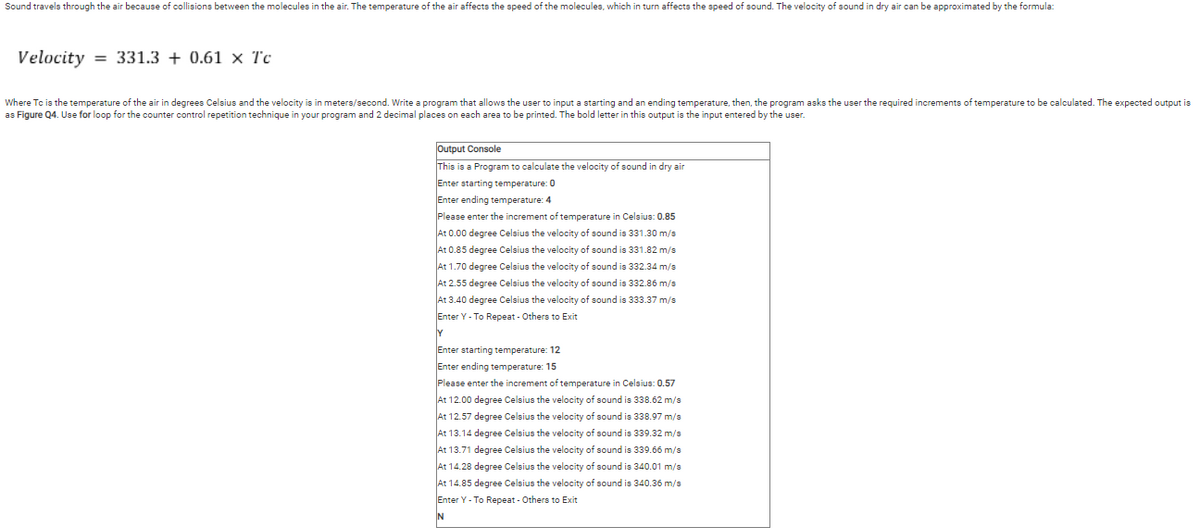Velocity = 331.3 + 0.61 × Tc Where Tc is the temperature of the air in degrees Celsius and the velocity is in meters/second. Write a program that allows the user to input a starting and an ending temperature, then, the program asks the user the required increments of temperature to be calculated. The expected output as Figure Q4. Use for loop for the counter control repetition technique in your program and 2 decimal places on each area to be printed. The bold letter in this output is the input entered by the user. Output Console This is a Program to calculate the velocity of sound in dry air Enter starting temperature: 0 Enter ending temperature: 4 Please enter the increment of temperature in Celsius: 0.85 At 0.00 degree Celsius the velocity of sound is 331.30 m/s At 0.85 degree Celsius the velocity of sound is 331.82 m/s At 1.70 degree Celsius the velocity of sound is 332.34 m/s At 2.55 degree Celsius the velocity of sound is 332.86 m/s At 3.40 degree Celsius the velocity of sound is 333.37 m/s Enter Y- To Repeat - Others to Exit Enter starting temperature: 12 Enter ending temperature: 15 Please enter the increment of temperature in Celaius: 0.57 At 12.00 degree Celsius the velocity of sound is 338.62 m/s At 12.57 degree Celsius the velocity of sound is 338.97 m/s At 13.14 degree Celsius the velocity of sound is 339.32 m/s At 13.71 degree Celsius the velocity of sound is 339.666 m/s At 14.28 degree Celsius the velocity of sound is 340.01 m/s At 14.85 degree Celsius the velocity of sound is 340.36 m/s Enter Y- To Repeat - Others to Exit IN
Types of Loop
Loops are the elements of programming in which a part of code is repeated a particular number of times. Loop executes the series of statements many times till the conditional statement becomes false.
Loops
Any task which is repeated more than one time is called a loop. Basically, loops can be divided into three types as while, do-while and for loop. There are so many programming languages like C, C++, JAVA, PYTHON, and many more where looping statements can be used for repetitive execution.
While Loop
Loop is a feature in the programming language. It helps us to execute a set of instructions regularly. The block of code executes until some conditions provided within that Loop are true.
C++

Trending now
This is a popular solution!
Step by step
Solved in 2 steps with 1 images




